Stephen Arthur was frustrated and angry when we talked on Saturday morning.
The Wicklowman has been inundated with calls from members of the Irish Farmers' Association's (IFA) dairy committee, which he chairs, and farmers around the country since European Commissioner for the Environment Virginijus Sinkevicius's visit on Thursday.
We've had the Late Late Toy Show, we’re hurtling towards the end of the year and only now are derogation farmers being formally told whether they will be operating to a 250kg/ha limit or a 220kg/ha one.
“It’s an absolute scandal,” says Arthur. “Farmers are only getting letters telling them what zone they will be in come January. That’s only a month away now. They have no options and no time, and that should never happen.”
The environment Commissioner’s visit came and went the previous day, with no changes to the derogation arrangements, no flexibilities and no proposals from Government heard on the day.
Instead, the Commissioner highlighted that farmers would only have to export half their slurry from a three-month winter to maintain stock numbers and meet the reduced stocking rate dictated by the derogation.
Any hope that a six-month stay - or even an intermediary step-down from 250kg to 220kg - would be gained disappeared as soon as the Commissioner started talking to a wide group of not just farmers, but also dairy processor representatives, Teagasc and environmental activists.
Terrible decisions
This weekend, dairy farmers all around the country are walking through their cows, trying to pick out which ones will be sacrificed to meet the new regulations.
These cows will inevitably have to be slaughtered, as 3,500 farmers will have to offload cows at the same time, and no-one is in the market to buy them.
Stephen highlights that cow banding and the extended closed period for slurry spreading have already tightened dairy farmers' capacity to carry cows.
“It’s been a triple-whammy in 2023 - banding, slurry storage and now the derogation changes,” he says. "That’s way too much change in a single year, with little or no notice for farmers.
"We can’t make land, we can’t buy land and we can’t rent land. There is very little land available and it’s at prices that barely made sense when milk was 50 cents a litre. At 32 cents a litre, it’s a licence to go broke.”
A farmer with 40, 50 or 60 cows could be put out of business by this
Arthur is most concerned for those farmers with small and medium-sized herds.
“Look, a farmer with a few hundred cows will feel the hit. They may have to restructure repayments on investments made, but they will survive,” he says. "But a farmer with 40, 50 or 60 cows could be put out of business by this.”
"Farmers have to continue making repayments on investments made purely to improve the environmental footprint of our farms, like buildings, farm roadways, GPS-controlled fertiliser spreaders and slurry tankers, but with less cows and less money.
"Farmers are no different to anyone else in that we want to play our part in improving the environment, but no-one else bar the workers laid off in the peat factories are being hit in their pocket like dairy farmers. We're carrying the can so others can feel good about themselves. That is not climate justice."
'Fundamentally wrong'
Arthur believes that the Commissioner is fundamentally wrong when he suggests that slurry exports are a viable solution.
“It won’t work for the farmer and it won’t work for the environment,” he maintains. “If a farmer exports half his winter slurry, that exporting nutrients is vital for grass growth. Farmers have never been better at utilising this precious resource.
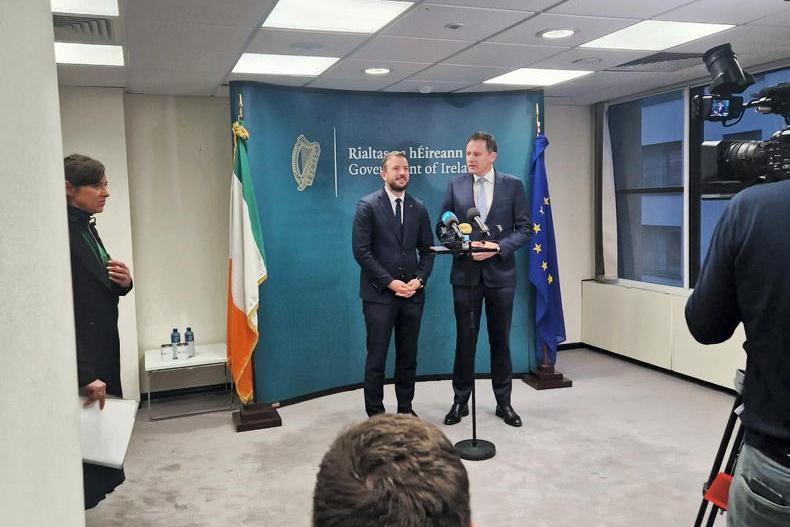
European Commissioner for the Environment Virginijus Sinkevicius and Minister for Agriculture Charlie McConalogue brief the press following their meeting on Thursday. \ Pat O'Toole
"The use of low emissions slurry spreading (LESS) equipment, which injects the slurry straight into the ground, reducing the prospect of run-off, is compulsory for derogation farmers.
“LESS involved a massive investment from farmers in slurry spreading equipment, but it’s working,” Arthur said. “And the proof is the reduction in chemical fertiliser use over the last couple of years.”
Last week, the Department of Agriculture revealed that fertiliser sales fell 18% in 2023. That means a cumulative reduction of one-third in only two years.
We’ve been stitched up
In June, the CSO showed that nitrogen usage had fallen by 14% since 2001. But chemical nitrogen and phosphorus usage levels and allocations are walled off from the nutrients contained in slurry and farmyard manure, so this reduction puts nothing on the credit side for farmers.
“We’ve been stitched up,” says Arthur. “And now, farmers are faced with impossible decisions. And all for no gain that I can see. This won’t reduce the pressure on rivers one iota.”
I have some sympathy for him on this one. As a tillage farmer, if I take in slurry from a dairy farm, I will reduce my chemical fertiliser accordingly.
However, the dairy farmer I am importing from will probably increase his chemical fertiliser usage by more than I reduce mine by, all perfectly legally.
The net result is the same amount of slurry applied in the same river basin, as slurry will only move a short way down the road, with a probable increase in chemical fertiliser usage overall between the two farms involved.
Evidence
“The river won’t win and the farmer will lose,” Arthur says. Indeed, there is significant evidence that grassland is more likely to retain appropriately spread fertiliser than when it is applied to ploughed or tilled ground prior to planting a crop. The growing grass will utilise and help retain the slurry. This change fails a simple logic test.
Arthur believes the blame for this situation can be spread widely. He goes back to the negotiations around the derogation, which took place in late 2021 and early 2022.
“We were behind schedule all the way,” he said, referring to the delay in agreeing the current nitrates action programme.
Much worse was the lateness of the review that determined whether some parts of the country would have a 220kg/ka limit imposed on them for 2025.
“The maps not being published until the summer meant farmers had completed their breeding programmes - that should not have happened,” he says.
“Whatever review was taking place had to occur in time to allow farmers [to] plan ahead. It’s like changing the rules of a game halfway through, so a goal is worth five points in hurling or football, or a try is worth seven. It changes everything.
"At the very least, the EPA should have been given a deadline of 1 January 2022 to deliver the maps for 2024,” he maintained.
On Thursday, Commissioner Sinkevicius inferred that Ireland hadn’t used the time from April 2022 as well as it could have. It seems in this regard, at least, he is in agreement with Irish farmers.
Knock-on effect
Arthur is also acutely aware that there is a knock-on effect for dairy and suckler farmers alike from the plight faced by the estimated 900 cattle farmers who were farming close to the derogation limit.
These people are specialised beef finishers, who have a lot of cattle in sheds, being fed pretty intensively to meet the demanding consumer and factory specifications for beef.
If this cohort of farmers have to scale back, demand for young cattle and forward stores around mart rings will be badly affected and, inevitably, that will mean downward pressure on store and weanling prices.
“All dairy farmers will see lower prices for calves and weanlings. It’s just another hit to our incomes that we know is coming, that we can’t do anything about and that no-one is doing anything to prevent.”
This transition is totally unjust, but it seems the rules of fairness don’t apply to family farmer
Since the June announcement, Arthur and his colleagues in the IFA and fellow farmer representatives in the Irish Creamery Milk Suppliers Association (ICMSA) have been pushing hard for some flexibility to allow time for an orderly adjustment.
“We hear a lot of guff from Europe about just transitions,” says Arthur. “This transition is totally unjust, but it seems the rules of fairness don’t apply to family farmers.”
He now wants the politicians who have been telling farmers there was room for manoeuvre to explain themselves.
“The likes of Colm Markey, Billy Kelleher and Sean Kelly have been saying there was ground to be gained. Colm Markey was talking of a six-month adjustment period of some kind only last week.
"This kind of talk has delayed farmers moving cows, taking away their last option, apart from a cull and slaughter. These politicians have some explaining to do, as there seems a big difference between what the Commissioner said to us on Thursday and what we have been told is going on in Brussels."
Arthur’s anger and frustration is shared by thousands of farmers. Sunday evening sees Cork Central IFA hold an executive meeting to consider its reaction to the extinguishing of the last flicker of hope that a delay or adjustment could be gained. Feelings are running high and it’s entirely understandable.
However, having heard the Commissioner on Thursday, I think that farmers are out of options and out of time. It’s export slurry, rent or buy land, or sell cows.
“The three options we are left with are all of no use to the 60-cow farmer," says Stephen." They have been let down more than anyone and I don’t know what to say to them.”
Stephen Arthur was frustrated and angry when we talked on Saturday morning.
The Wicklowman has been inundated with calls from members of the Irish Farmers' Association's (IFA) dairy committee, which he chairs, and farmers around the country since European Commissioner for the Environment Virginijus Sinkevicius's visit on Thursday.
We've had the Late Late Toy Show, we’re hurtling towards the end of the year and only now are derogation farmers being formally told whether they will be operating to a 250kg/ha limit or a 220kg/ha one.
“It’s an absolute scandal,” says Arthur. “Farmers are only getting letters telling them what zone they will be in come January. That’s only a month away now. They have no options and no time, and that should never happen.”
The environment Commissioner’s visit came and went the previous day, with no changes to the derogation arrangements, no flexibilities and no proposals from Government heard on the day.
Instead, the Commissioner highlighted that farmers would only have to export half their slurry from a three-month winter to maintain stock numbers and meet the reduced stocking rate dictated by the derogation.
Any hope that a six-month stay - or even an intermediary step-down from 250kg to 220kg - would be gained disappeared as soon as the Commissioner started talking to a wide group of not just farmers, but also dairy processor representatives, Teagasc and environmental activists.
Terrible decisions
This weekend, dairy farmers all around the country are walking through their cows, trying to pick out which ones will be sacrificed to meet the new regulations.
These cows will inevitably have to be slaughtered, as 3,500 farmers will have to offload cows at the same time, and no-one is in the market to buy them.
Stephen highlights that cow banding and the extended closed period for slurry spreading have already tightened dairy farmers' capacity to carry cows.
“It’s been a triple-whammy in 2023 - banding, slurry storage and now the derogation changes,” he says. "That’s way too much change in a single year, with little or no notice for farmers.
"We can’t make land, we can’t buy land and we can’t rent land. There is very little land available and it’s at prices that barely made sense when milk was 50 cents a litre. At 32 cents a litre, it’s a licence to go broke.”
A farmer with 40, 50 or 60 cows could be put out of business by this
Arthur is most concerned for those farmers with small and medium-sized herds.
“Look, a farmer with a few hundred cows will feel the hit. They may have to restructure repayments on investments made, but they will survive,” he says. "But a farmer with 40, 50 or 60 cows could be put out of business by this.”
"Farmers have to continue making repayments on investments made purely to improve the environmental footprint of our farms, like buildings, farm roadways, GPS-controlled fertiliser spreaders and slurry tankers, but with less cows and less money.
"Farmers are no different to anyone else in that we want to play our part in improving the environment, but no-one else bar the workers laid off in the peat factories are being hit in their pocket like dairy farmers. We're carrying the can so others can feel good about themselves. That is not climate justice."
'Fundamentally wrong'
Arthur believes that the Commissioner is fundamentally wrong when he suggests that slurry exports are a viable solution.
“It won’t work for the farmer and it won’t work for the environment,” he maintains. “If a farmer exports half his winter slurry, that exporting nutrients is vital for grass growth. Farmers have never been better at utilising this precious resource.

European Commissioner for the Environment Virginijus Sinkevicius and Minister for Agriculture Charlie McConalogue brief the press following their meeting on Thursday. \ Pat O'Toole
"The use of low emissions slurry spreading (LESS) equipment, which injects the slurry straight into the ground, reducing the prospect of run-off, is compulsory for derogation farmers.
“LESS involved a massive investment from farmers in slurry spreading equipment, but it’s working,” Arthur said. “And the proof is the reduction in chemical fertiliser use over the last couple of years.”
Last week, the Department of Agriculture revealed that fertiliser sales fell 18% in 2023. That means a cumulative reduction of one-third in only two years.
We’ve been stitched up
In June, the CSO showed that nitrogen usage had fallen by 14% since 2001. But chemical nitrogen and phosphorus usage levels and allocations are walled off from the nutrients contained in slurry and farmyard manure, so this reduction puts nothing on the credit side for farmers.
“We’ve been stitched up,” says Arthur. “And now, farmers are faced with impossible decisions. And all for no gain that I can see. This won’t reduce the pressure on rivers one iota.”
I have some sympathy for him on this one. As a tillage farmer, if I take in slurry from a dairy farm, I will reduce my chemical fertiliser accordingly.
However, the dairy farmer I am importing from will probably increase his chemical fertiliser usage by more than I reduce mine by, all perfectly legally.
The net result is the same amount of slurry applied in the same river basin, as slurry will only move a short way down the road, with a probable increase in chemical fertiliser usage overall between the two farms involved.
Evidence
“The river won’t win and the farmer will lose,” Arthur says. Indeed, there is significant evidence that grassland is more likely to retain appropriately spread fertiliser than when it is applied to ploughed or tilled ground prior to planting a crop. The growing grass will utilise and help retain the slurry. This change fails a simple logic test.
Arthur believes the blame for this situation can be spread widely. He goes back to the negotiations around the derogation, which took place in late 2021 and early 2022.
“We were behind schedule all the way,” he said, referring to the delay in agreeing the current nitrates action programme.
Much worse was the lateness of the review that determined whether some parts of the country would have a 220kg/ka limit imposed on them for 2025.
“The maps not being published until the summer meant farmers had completed their breeding programmes - that should not have happened,” he says.
“Whatever review was taking place had to occur in time to allow farmers [to] plan ahead. It’s like changing the rules of a game halfway through, so a goal is worth five points in hurling or football, or a try is worth seven. It changes everything.
"At the very least, the EPA should have been given a deadline of 1 January 2022 to deliver the maps for 2024,” he maintained.
On Thursday, Commissioner Sinkevicius inferred that Ireland hadn’t used the time from April 2022 as well as it could have. It seems in this regard, at least, he is in agreement with Irish farmers.
Knock-on effect
Arthur is also acutely aware that there is a knock-on effect for dairy and suckler farmers alike from the plight faced by the estimated 900 cattle farmers who were farming close to the derogation limit.
These people are specialised beef finishers, who have a lot of cattle in sheds, being fed pretty intensively to meet the demanding consumer and factory specifications for beef.
If this cohort of farmers have to scale back, demand for young cattle and forward stores around mart rings will be badly affected and, inevitably, that will mean downward pressure on store and weanling prices.
“All dairy farmers will see lower prices for calves and weanlings. It’s just another hit to our incomes that we know is coming, that we can’t do anything about and that no-one is doing anything to prevent.”
This transition is totally unjust, but it seems the rules of fairness don’t apply to family farmer
Since the June announcement, Arthur and his colleagues in the IFA and fellow farmer representatives in the Irish Creamery Milk Suppliers Association (ICMSA) have been pushing hard for some flexibility to allow time for an orderly adjustment.
“We hear a lot of guff from Europe about just transitions,” says Arthur. “This transition is totally unjust, but it seems the rules of fairness don’t apply to family farmers.”
He now wants the politicians who have been telling farmers there was room for manoeuvre to explain themselves.
“The likes of Colm Markey, Billy Kelleher and Sean Kelly have been saying there was ground to be gained. Colm Markey was talking of a six-month adjustment period of some kind only last week.
"This kind of talk has delayed farmers moving cows, taking away their last option, apart from a cull and slaughter. These politicians have some explaining to do, as there seems a big difference between what the Commissioner said to us on Thursday and what we have been told is going on in Brussels."
Arthur’s anger and frustration is shared by thousands of farmers. Sunday evening sees Cork Central IFA hold an executive meeting to consider its reaction to the extinguishing of the last flicker of hope that a delay or adjustment could be gained. Feelings are running high and it’s entirely understandable.
However, having heard the Commissioner on Thursday, I think that farmers are out of options and out of time. It’s export slurry, rent or buy land, or sell cows.
“The three options we are left with are all of no use to the 60-cow farmer," says Stephen." They have been let down more than anyone and I don’t know what to say to them.”






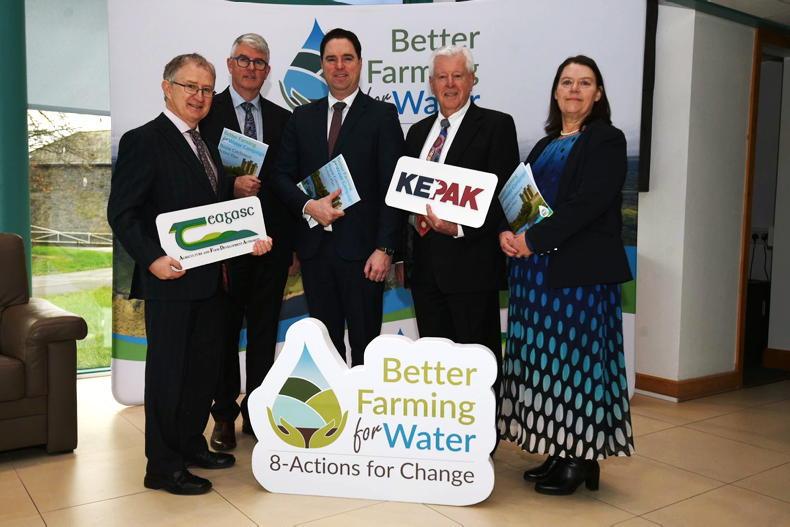
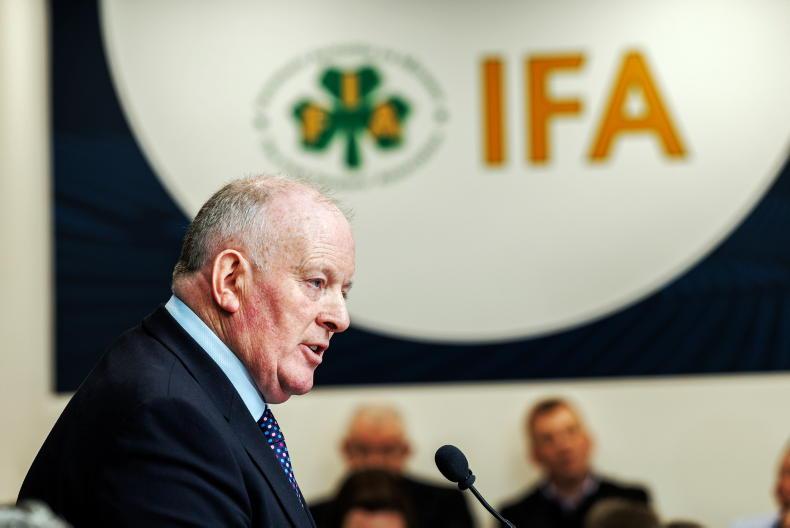
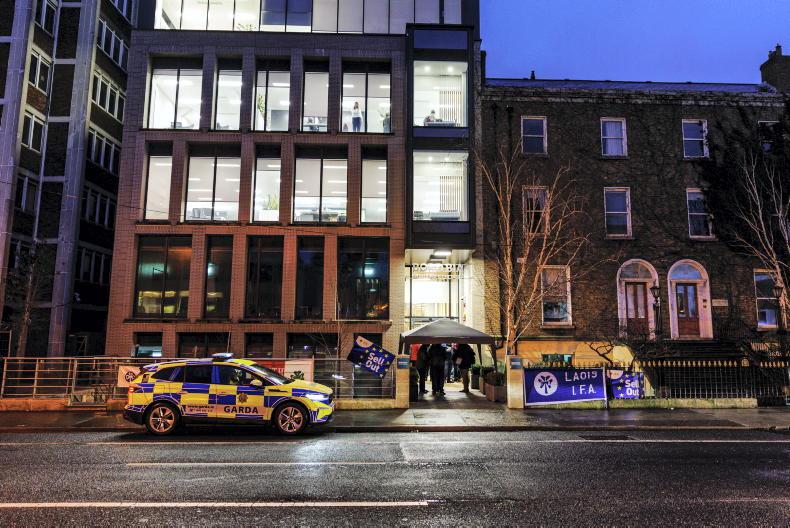
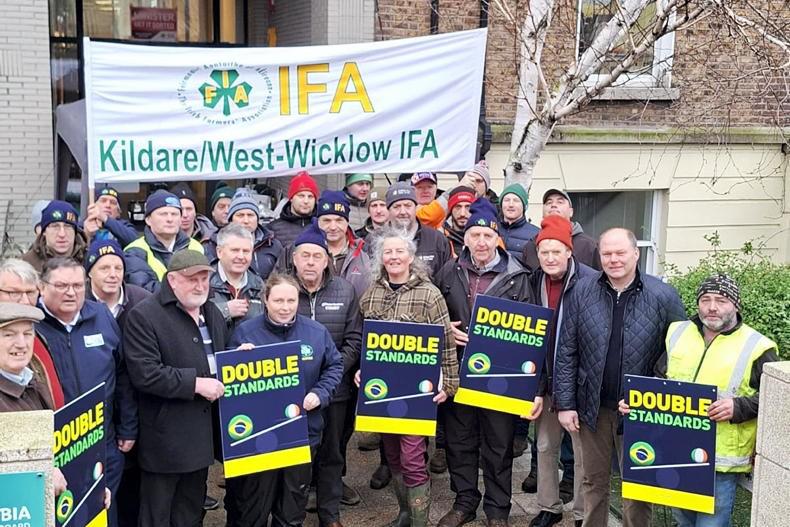
SHARING OPTIONS